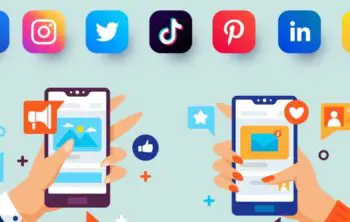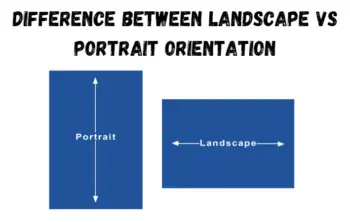Artificial Intelligence (AI) has been making headlines around the world in the last year, becoming especially important in digital marketing.
A report by Gitnux found up to 90% of marketers now use AI for automation, with 80% of B2B marketers believing it will revolutionize the industry.
But why have digital marketers fallen head over heels for this new technology?
Today, let’s break down 10 of the most common AI applications in digital marketing and how you can take full advantage of it in 2024.
10 AI Applications That Digital Marketers Can Use in 2024
#1. Perform Precise Market Analysis
In the past, performing in-depth market analysis took weeks of work by a seasoned professional. Nowadays, with the web-scraping power of generative AI, you can perform expert market analysis at the click of a button.
Unlike those made by humans, AI-based market analysis can be updated in real time. Consequently, AI can make much better predictions based on market data, as it considers all variables.
#2. Segment Your Customer Base
A truly powerful digital marketer knows their customer base in and out. If you want your marketing campaigns to flourish, you need to segment your customer base to better target individual groups. You can separate your customers by:
- Demographics: Age, gender, race, education, occupation, etc.
- Behaviors: Purchasing frequency, ad engagement, and browsing habits.
- Technographics: Preferred device types and social media platforms.
- Loyalty: Occasional buyers, frequent purchasers, and repeat customers.
- Psychographics: Sentiments, personality, hobbies, lifestyle, etc.
When you segment your customer base into categories like these, you can target specific niches to optimize your content and strategies.
#3. Generate Optimal Content
Let’s face it — being a content creator is part of your job as a digital marketer. Instead of spending money and hours on content creation, work with AI to create optimized content quickly for your target audiences.
With AI, you can take content creation even further by personalizing it to suit each customer segment you’ve identified. This leads to higher conversions and better customer satisfaction due to the personalized experience.
#4. Boost Your Email Marketing
One of your most crucial marketing materials is your emails. Luckily, with AI, you can optimize your email marketing. Even without the purpose of sales, your emails represent your business to new clients.
With clearly identified customer segments, you can generate personalized email content for each type of customer. Compared to traditional email marketing, the added personalization is guaranteed to better engage your customers.
#5. Employ an AI Chatbot
The last thing digital marketers should be wasting their time on is customer service. Not only is it time-consuming, but also an incredible challenge to maintain high customer satisfaction. Generative AI chatbots can handle:
- On-site customer inquiries;
- Handling disputes and grievances;
- Supplying customers with more information;
- Acting as a middle-man between you and your customer.
A study by Tidio has shown that close to 70% of customers are satisfied with chatbot customer service. Ensure even higher satisfaction by training your chatbot to suit your target audiences.
#6. Perform A/B Tests Instantly
What are marketers without their focus groups and A/B tests? Well, marketing would be more trial and error than it is now. A/B tests take time, and often a budget on its own. AI supercharges A/B testing so you can optimize your time:
- Use generative AI to automate an A/B test on a landing page, ad copy, etc.
- Receive results and immediately use the AI to analyze them.
- With your newly acquired insights, optimize your content to suit.
#7. Use AI to Pick the Best Leads
Lead scoring has never been easier than with AI. Simply put, lead scoring is the process of scoring customers on the likelihood of converting and creating sales. This way your sales team is focusing their efforts on the most profitable targets.
This once-complicated process is now automated by AI. Criteria like job title, purchase history, and more are evaluated and given a number. Lead scoring empowers your marketing and sales teams to be more efficient, synergistic, and effective.
#8. Protect Your Campaign With AI Cybersecurity
Of the various fields in which AI has been utilized, none are more important than AI-powered cybersecurity tools. While they don’t provide direct increases in sales or content optimization, they guarantee your campaign’s safety.
The following are the most essential AI-based cybersecurity tools:
- Fraud detection: Notices and reports suspicious network activity.
- Antivirus: Ensures your business network remains malware-free.
- VPN: Learn what a VPN is and how it secures your network from a reputable information source.
- UEBA: User and Entity Behavior Analytics (UEBA) tools surveil suspicious users for risky and abnormal behaviors.
#9. Enable Dynamic Pricing
Dynamic pricing has been adopted throughout the business world, and it’s all powered by AI. By keeping track of competitors’ prices, high-demand times, and many other factors, AI can shift your pricing to suit.
Customers who are offered competitive prices are more likely to return. Dynamic pricing models ensure that your prices always reflect the state of the market, your competitors, and your customers’ expectations.
#10. Analyze Your Content’s Performance
Finally, when all is said and done, you need to know that your efforts have been worth it. Even at the very end, AI still has more insights to offer digital marketers, allowing you to analyze your content’s performance.
Whether your content has been published or not, AI can analyze the chances of its success. This way, your content team doesn’t waste time on content that won’t create more sales.
Conclusion
In the ever-shifting world of digital marketing, AI has made a name for itself as an indispensable tool for market and customer research.
Additionally, AI can aid in your content generation, lead scoring, A/B testing, and so much more.
Now, the question is, how will you implement AI in your next marketing strategy?






